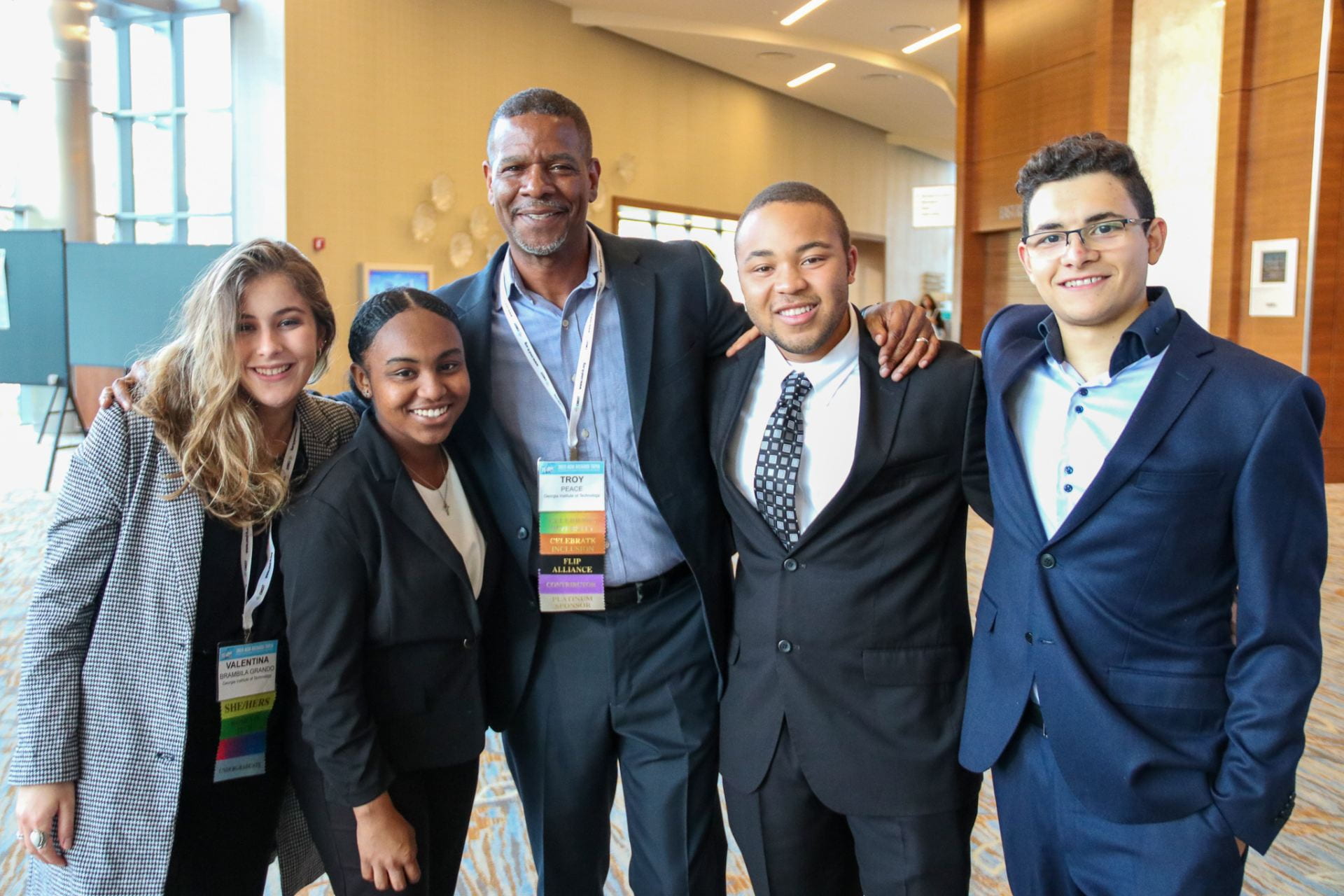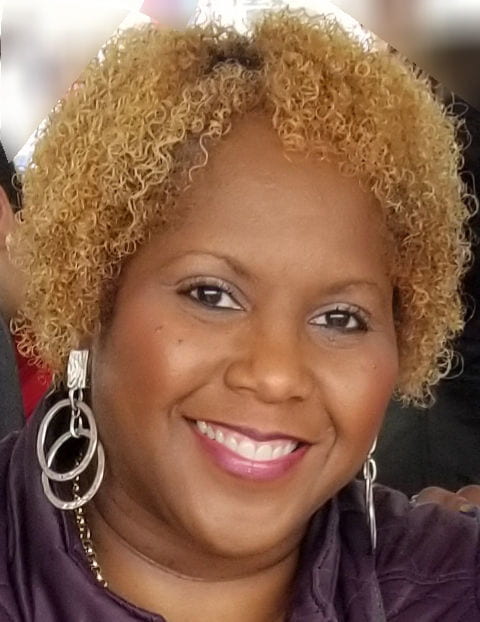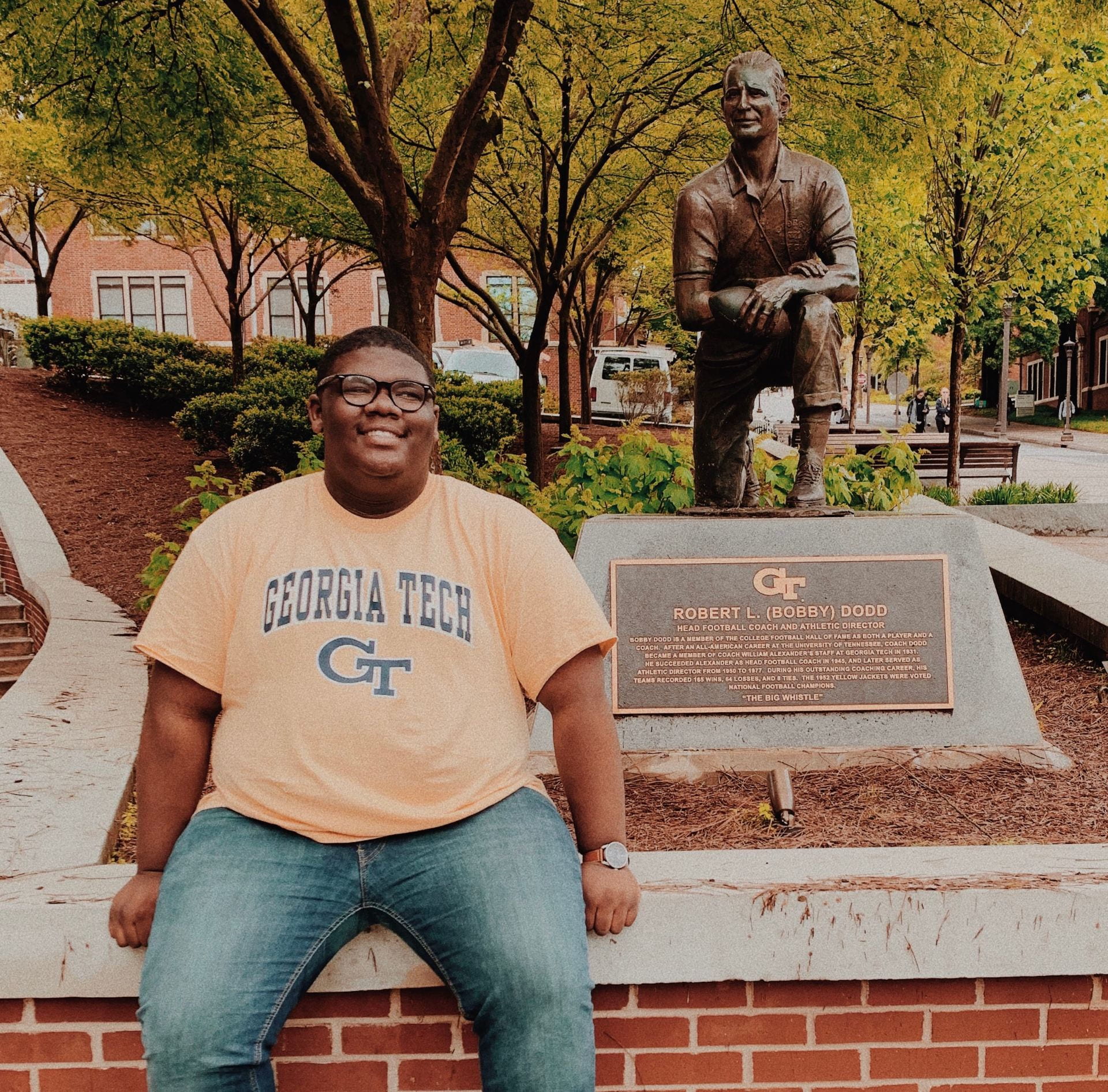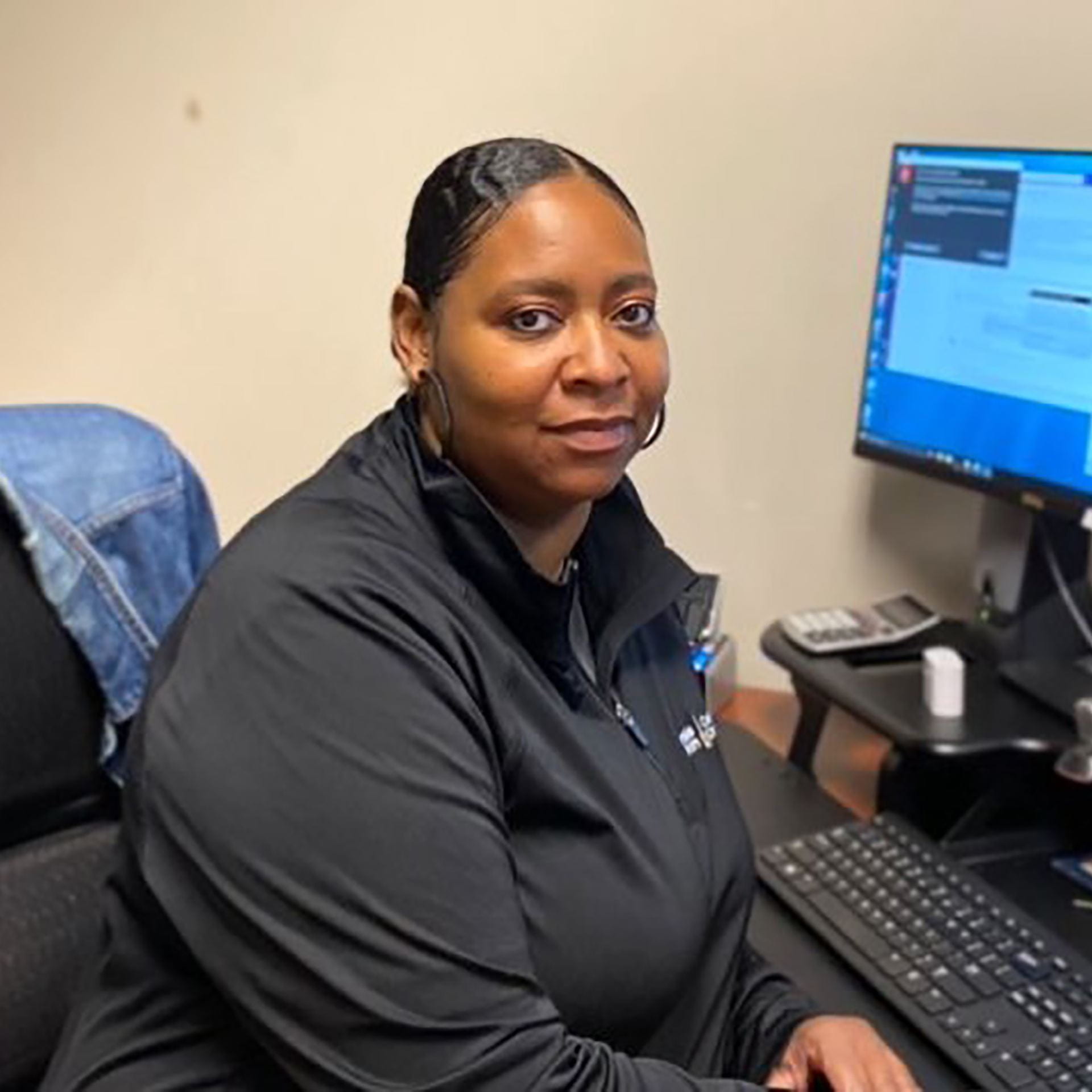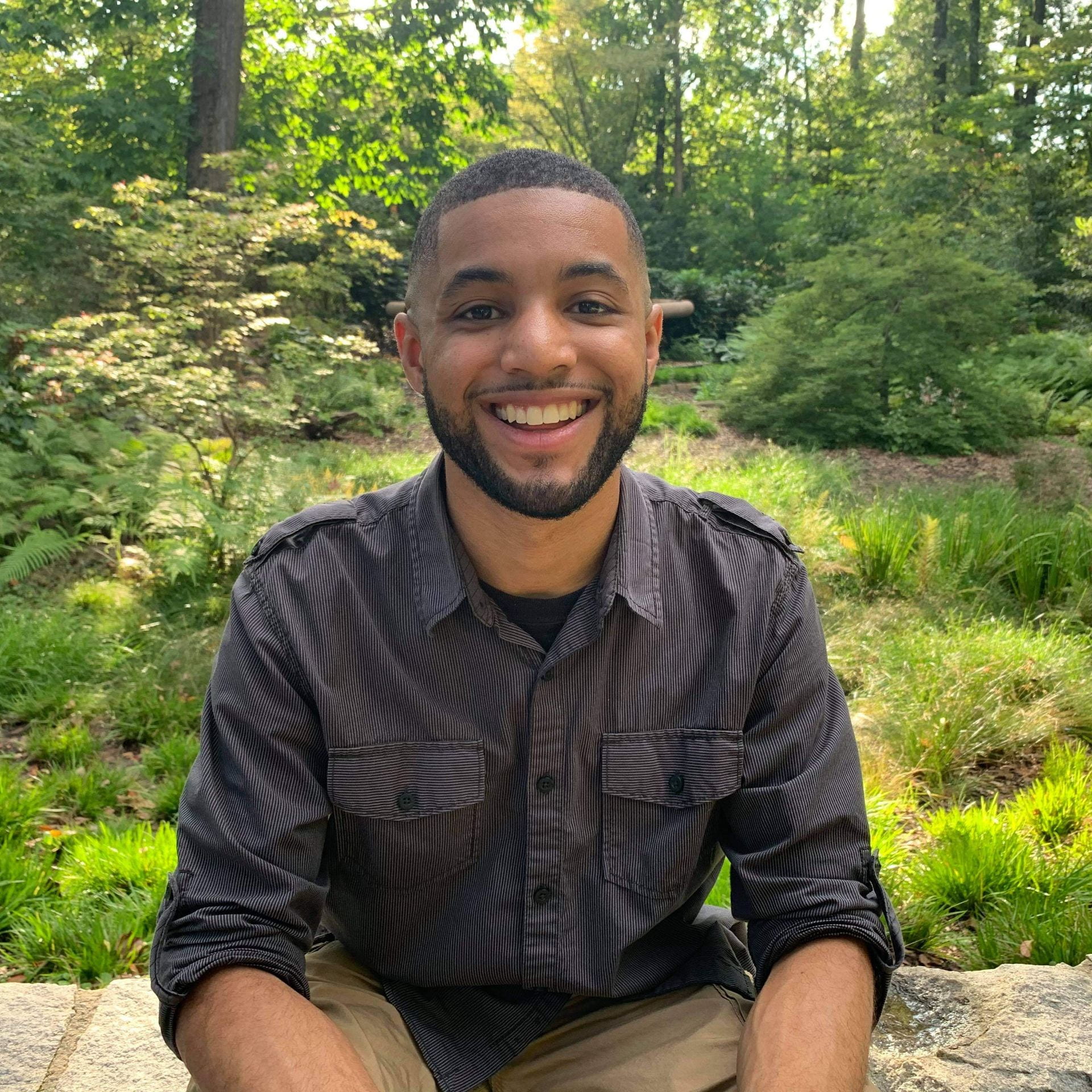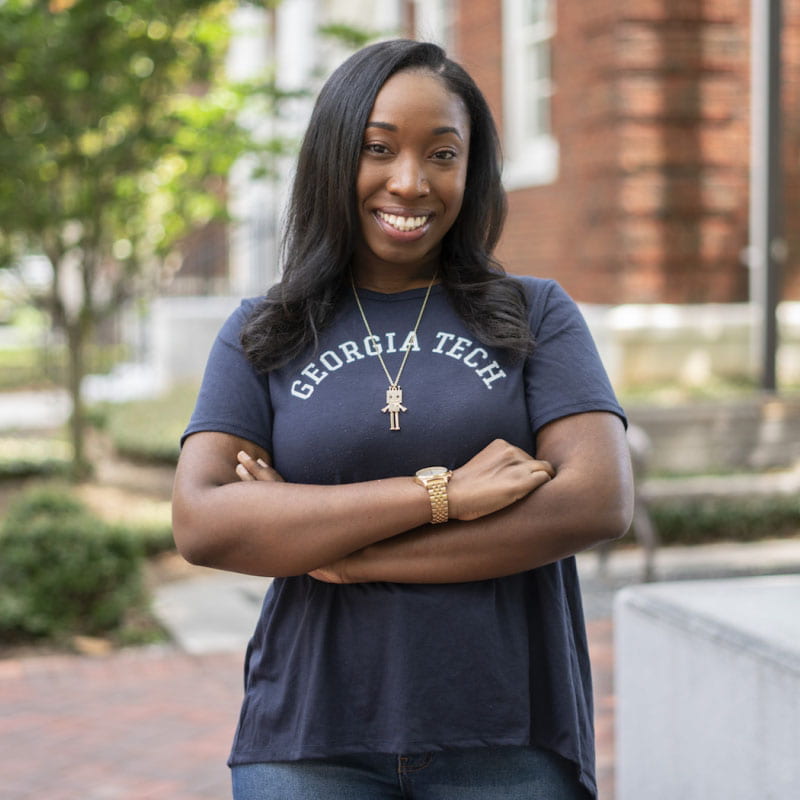Panchita Smith
Purchasing Associate | College of Computing Finance Team
What role has mentorship played in your life?
Mentorship has played a big role in my life. I’ve been fortunate to be the Youth Director at my church. Through mentoring, I’m able to encourage and inspire these young kids to find what they’re passionate about.
How would you describe a successful mentor/mentee relationship?
A successful mentor relationship shows you possibilities. The lessons learned from a mentor are invaluable.
What’s the biggest challenge to successful mentorship?
The biggest challenge to a successful mentorship would be trying to establish a trusting relationship. If you’re giving someone advice on their career or education, you need to have a great relationship. Your mentee needs to know that you have already traveled down the road where their trying to go.

How does your own mentor/mentee experience inform your professional life?
Many things do. Perhaps the most important is that hard work pays off.
It’s easy to see the benefits for the mentee, but how would you describe what’s in it for the mentor?
We all have a responsibility to pay it forward, so that is the first benefit – being able to invest in someone the same way someone else invested in you. Beyond this moral imperative, I have personally learned a lot from my mentees and their experiences. Some of my mentees have very different worldviews and life experiences from me, and it has been impactful learning from those experiences and expanding my own personal worldview. Substantively, I also believe learning never ends and can come from multiple places, including my mentees. So, I have personally grown by viewing life through the lens of someone else (i.e., my mentees).
Olufisayo Omojokun
Interim Director of the Division of Computing Instruction and Senior Lecturer
What role has mentorship played in your life?
It has played an important role, both personally and professionally. Professionally, having close mentors has provided invaluable insights that may have otherwise remained blind spots. My father was my first mentor and continues to be my most important mentor. He nurtured and encouraged my interest in CS from a very early age. In completing my undergrad and graduate studies, having mentors who walked a similar path and were willing to invest in a young, eager student increased my self-confidence, expanded my worldview, and opened doors that I would otherwise had not known existed.
Why is mentorship important?
Quite simply, mentors are personal guides and trusted advisors. As George Lucas famously noted, “Mentors have a way of seeing more of us and our faults than we would like. It’s the only way we grow.” Mentorship is such a critical tool to personal and professional development – for both the mentor and the mentee – and it never hurts to have an advocate (and motivator) in your corner.
Troy Peace
Community Director | College of Computing Office of Outreach, Enrollment, and Community
How does your own mentor/mentee experience inform your professional life?
As I’ve become seasoned professionally, I found myself wanting to get to the point and fix problems. But I’ve learned that the more I listen and let students express themselves and communicate, the more things become apparent to them. Young adult views and experiences are much different than when I was their age. With the creation and expansion of social media, listening to them is HUGE!
It also allows me to ask questions and get explanations and perspectives for a new world that I don’t quite always understand. I get to ask students questions and although they sometimes laugh at me because I’m older and don’t get it, they nevertheless take the time to provide clarity. It definitely increases the possibilities of establishing rapport and creating community amongst the populations of students that I serve. .
What’s the biggest challenge to successful mentorship?
You’re not going to connect with everyone. There are times when students stop coming by the office or are alright with figuring things out on their own. Everyone’s situation is unique, as is their path to success in and out of the classroom. You can only help those that want the assistance. Forcing yourself on students makes them uncomfortable, but if I see a young person struggling then I reach out regardless and do what I think is appropriate.
Additionally, you can’t have a predetermined game plan or blueprint for a student’s success. Students are going to work with you, do it their way, excel, fail and/or have unique experiences along the way. It’s imperative to meet students where they are and help them set and achieve their goals and dreams.
What from your mentor/mentee experience informs your professional life to this day?
I continue to be enlightened by the fact that everyone thinks differently. Everyone has different work ethics, values, moral compasses, and overall general ways of doing things. And this is all ok. The point is recognizing these differences and working together towards the common goal.
.
Patricia Allen
Senior Development Assistant | Office of Development
How would you describe a successful mentor/mentee relationship?
As a mentor, it is not about “molding” someone into a “Mini-Me” or Clone… it is about instilling knowledge, best practices learned, life-lessons learned, and pushing another person to be the best version of themselves. I recognize that I will play a part in this process, so I want to do my best during my designated time to send my mentee to the next level for the mentors after me to pick up where I left off and move to future higher levels.
What is the biggest challenge to successful mentorship?
I would say that time is one of the biggest challenges to a successful mentorship. These days, with varying schedules, it is sometimes difficult for people to come together in -person or virtually. Then you add a pandemic to the equation, now you have compounded the situation. You must have time for talking and sharing with one another. A successful mentorship should center around trust, and the building of trust can take time for some people. Trust is important because of the many possible aspects and areas of life a mentor and mentee could exchange information and experiences.
People Paving the Way
Our world-class students, faculty, staff, and alumni are finding ways to expand access to computing, and to mentoring teachers, developing entrepreneurship, and supporting the Georgia Tech community. Ultimately, they are dynamically paving the way for more Black students to pursue careers in computer science-related fields.



